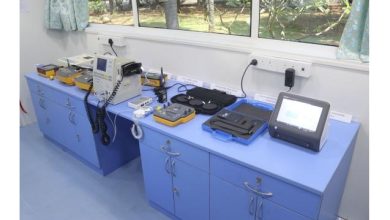1st Annual International HPV Awareness Day; Spreading Knowledge and Prevention Around the Globe

Last Sunday, March 4th, marked the 1st annual International HPV Awareness Day, organized by the International Papillomavirus Society (IPVS) and its global partners. The goal of the day is to spark conversation and promote a worldwide exchange of ideas, knowledge and research-based information about human papillomaviruses (HPV) and their associated diseases. This is the first year of the new annual awareness day, which will take place every March 4th going forward with a specific focus each year.
The campaign is “Give Love, Not HPV.” We believe love is the foundation of a happy and healthy life. Whether it’s familial love, love between friends or romantic love, it’s important to protect the ones who matter most. By increasing awareness of the risks of the virus worldwide, we will create a movement to fight back with: “Give Love, Not HPV”.
“There are countless things we want to give our loved ones,” Silvia De San Jose, President of IPVS explained, “protection, comfort, and security. But we don’t want to give them something that is hard to talk about: HPV. This day is about spreading knowledge to people around the world about human papillomaviruses and their associated diseases, and the measures that they can take to protect themselves and their loved ones.”
Human papillomaviruses (HPVs) are sexually transmitted viruses that are very common worldwide. There are more than 200 different HPV types, and most sexually active men and women will acquire at least one genital HPV type at some point in their lifetime. Some types of HPVs are known to cause certain cancers such as cervical, anal and oropharyngeal cancer. Worldwide, cervical cancer is the fourth most frequent cancer in women and an estimated 270,000 women die of cervical cancer every year.
This year’s Awareness Day will focus on a variety of countries around the world. The problems associated with HPV affect people in both developed and developing countries, however, prevention options vary. In developed countries, there are several approaches to prevention of HPV-related cancers. One approach is the HPV vaccination, which effectively prevents infection with HPV. Others, such as HPV testing and cervical Pap smear screening, are aimed at individuals who may already have been exposed to HPV.
In developing countries, there is limited access to both of these prevention approaches. Cancer is often diagnosed at an advanced stage and prospects for treatment may be poor, resulting in a higher rate of death from cervical cancer in these countries. Even in developed countries access to prevention, screening and treatment vary and the impact of HPV is felt disproportionately in poorer communities.
Men can contract and transmit cancer-causing HPV as well. For men who have sex with men, the risk of developing anal cancer after contracting HPV is comparable to cervical cancer in women infected by HPV.
Dr. Joel Palefsky, Chairman of the IPVS International HPV Awareness Day campaign committee, summarized the purpose of the day. “HPV Awareness Day will share information about HPV and prevention and treatment options. It will also help to connect people to local organizations that are helping to save lives. HPV affects everyone and we can all take steps to care for one another – we know what works. On March 4th our aim is to inspire conversations and build global commitment to combat this silent killer.”




